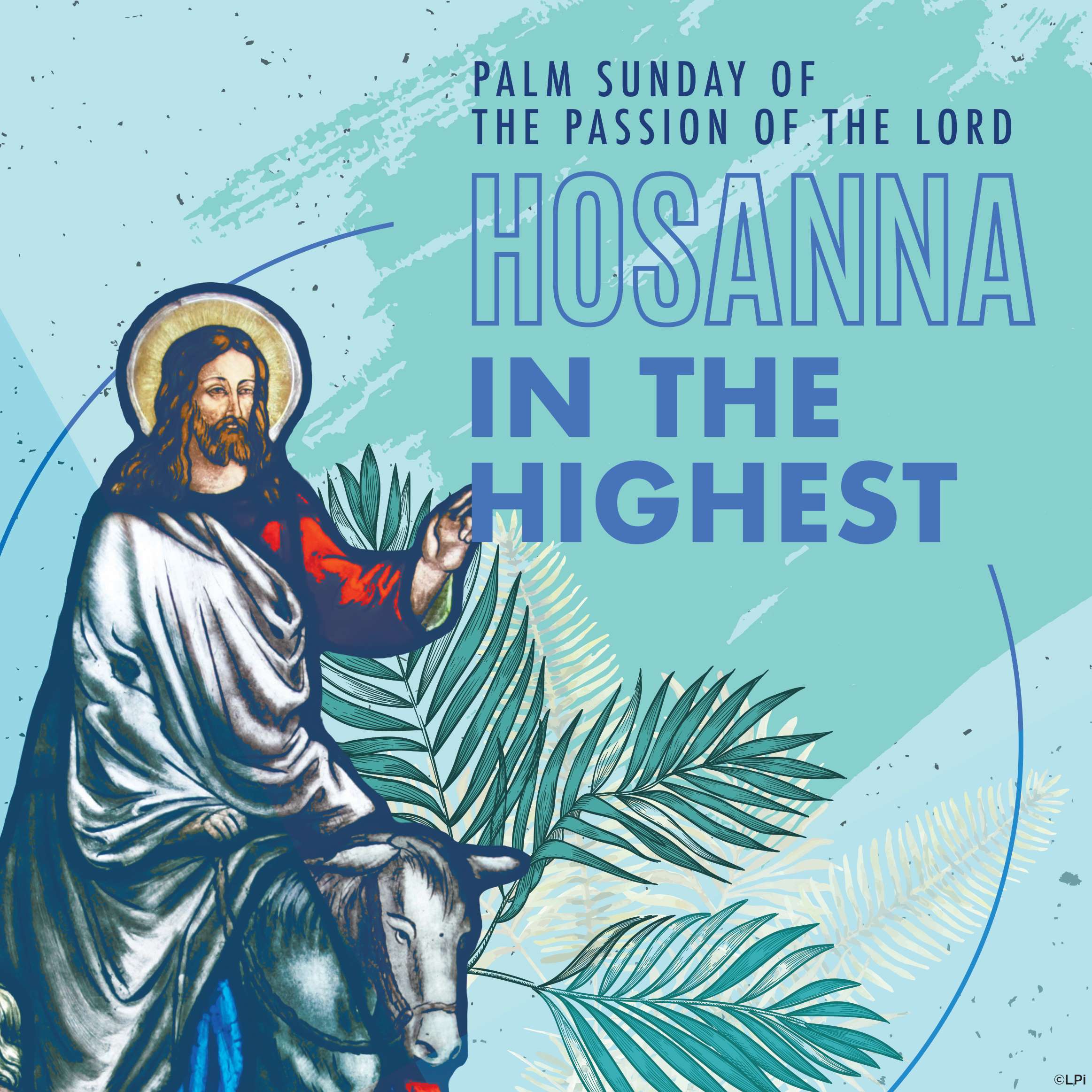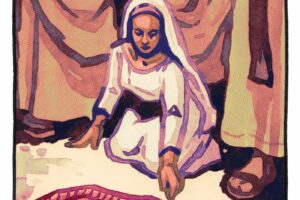
Palm Sunday 2024 Homily
A few years ago some archaeologists in the Holy Land excavated a tax collector’s office that was almost intact, with all the tax records. There were two stacks of tax records, and one of them had the Greek word, tetelestai, meaning “paid in full,” on the top. That is the people whose papers were in that stack did not owe anything anymore to the Roman Government. So, when Jesus said from the cross, “It is finished” (“Tetelestai,”), He meant that the debt we owed God by our sins had been paid in full. In other words, His love, expressed in his passion and death, had atoned for our sins and redeemed us. The sufferings and death of Jesus should remind us that we should not cause pain to Jesus our Redeemer by our sins.
Today, we celebrate both Palm Sunday and Passion Sunday. The first part of today’s gospel describes the royal reception which Jesus received from his admirers. In the second part, we listen to the Passion of Christ. We are challenged to examine our own lives in the light of some of the characters in the story like Peter who denied Jesus, Judas who betrayed Jesus, Pilate who acted against his conscience, Herod who ridiculed Jesus, and the leaders of the people who tried to preserve their position by getting rid of Jesus and misleading the people.
In the First Reading we see the prophet Isaiah didn’t fear to serve God completely. The prophet suffers in carrying out his mission, but is sustained by the firm belief that God will not abandon him. He describes how the suffering servant accepts the role of suffering which the Father had designated for Him. In the second reading, St. Paul reminds us of Jesus’ humble obedience even to death on the cross. Because Jesus took on Himself our human condition and accepted suffering and death on the Cross, God raised him up and made him the Lord of heaven and earth. In the Gospel, Mark leads us along the way of the cross as Jesus was betrayed, arrested, and crucified by sinful men only because He was sinless and the Son of God. This story of innocent Jesus’ execution and crucifixion in the midst of two thieves moves the heart of any person with pity and sympathy.
What do these sufferings mean? Our heavenly father realized that it is only through the death of his son, that humanity will be saved, because he loves us. In the Gospel of John, Chapter 3;15 says “ For God so loved the world that he gave his only Son, so that everyone who believes in him might not perish but might have eternal life.”
Jesus realized the plan of his father upon him, and he allowed himself to die for us to save us from our sins. His suffering was a sign of love, an invitation to love, and a revelation about love. It is a source of hope and strength. Jesus said, “Love one another, just as I have loved you”. Jesus’ suffering gave us the hope that our suffering with Jesus will not be a destructive one, but redemptive and Jesus will glorify us at the end.
Jesus’ cross signifies his self-emptying love for us. We cannot have Easter without the cross. Jesus said, “If anyone wants to follow me, he must forget himself, carry his cross, and follow me”. By attending to the passion narrative and applying its lessons to our own lives, we learn the cost of discipleship and we learn what it means to follow Jesus. In every Eucharist we celebrate the Paschal Mystery, the redemptive suffering, dying, and rising of Jesus. Holy Week celebrates each aspect of this mystery in its own special ambiance.
Human nature desires everything to be pain-free. But in reality it is impossible. Suffering is the inseparable part of a human life, whether it is in our personal, family, social or spiritual lives. Jesus’ suffering, death and the resurrection, gives us the greatest source of hope and strength. Dear friends, let us enter into Holy Week singing Hosanna to the Lord praying for grace to go through the pain and sufferings of our lives with the hope of enjoying eternal heavenly glory. The sufferings we go through with Jesus will pass, but the fruit will remain forever.
Today, we received palm branches. Let us take them to our homes and put them in some place where we can always see them. Let the palm leaves remind us that Christ is the only true answer to our quest for happiness and peace in our lives. It is only when we accept Christ as the King of our hearts and families that true peace is found. The Greek word “hosiana” originally meant “save us now”. Let us sing hosanna to Jesus, and accept Jesus as the true son of God who comes to save us from our sins.
May God bless you.
-Fr Johnson



